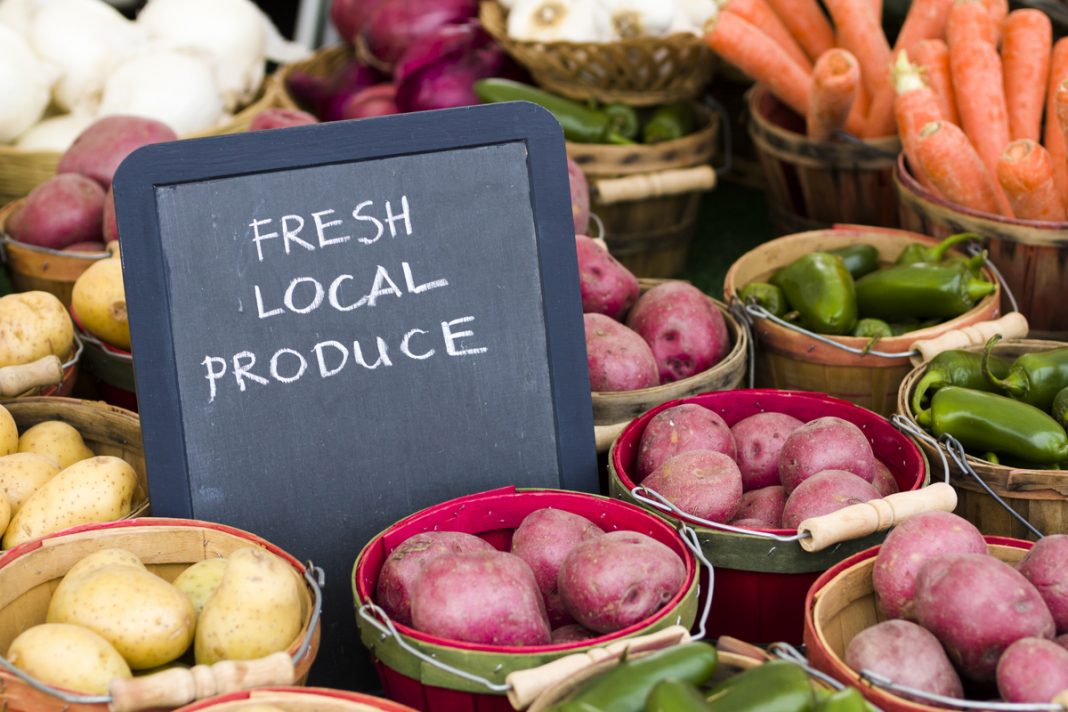Back in the day, summer vacations were with my grandma in a town called Mangalore. She was an excellent cook and we loved every dish she churned out. Every time we complimented a dish, she left us with a secret as to how she made the taste exclusively hers.
I rake up the memories as I pen this article, a lot of what she told us back then holds true today.
At 8am every day of the week grandma Tressy would trot off to the market and buy fruit, vegetables, chicken and fish for the day, mind you nothing extra that would carry forward to the next day.
Grandma Tressy said — Buy and eat fresh food daily.
Morning breakfast was tea made with a bunch of freshly cut lemongrass from the garden, followed by fruit in season, cut on the breakfast table never earlier.
Grandma Tressy said — The lemon grass tea makes your stomach alkaline and fruit must be eaten within half hour of cutting or juicing, after thirty minutes it begins to ferment rapidly losing its nutrients and fructose turns into killer sugar.
Lunch and dinner is from the stove to the table, never reheated.
Grandma Tressy said — The more you cook or heat your food, the more nutrients are lost.
The local market usually had home grown vegetables, from the farmers home to the market, no middle men, no storage, as daily harvesting was in ratio to sales. They had that figured out. All fruit and vegetables were seasonal, all fish and meat fresh too. The waste was fed to the local cats, dogs, cows, chicks or pigs to ensure minimum wastage.
Grandma Tressy said — Always buy what’s in season and grown closest to home.
These words of wisdom are now being proclaimed by world-class nutritionists.
With an increase of population, advancement in science and technology, travel and transport the world has become a smaller place. Living in Mumbai, I can eat dragon fruit from Thailand or dates from Iran, any desire is mine to have. It’s a liberating and freeing feeling, but like all things in life, it comes with a price.
The need for large-scale industrial practices as the demand for fresh produce increased. The farmer and his family could no longer manually grow and harvest produce. With industrial farming, produce and crops are usually picked before they are even ripe, the produce is put in hibernation for extended periods of time till ripe, very often, artificial ripening products are added to speed up the process. After the produce are somewhat ripe, they are coated with wax to ensure minimum bruising in storage and transit, shipped to distribution centers and finally to your local supermarket.
What a long journey before you come face to face with the product. We then shop weekly for produce, refrigerate it, cook once for the day, reheating food for each meal.
Artificially manipulating the natural growing and ripening process can result in good looking, large size, rich in colour and firm to the touch BUT does it have the accompanying taste?
Current day life and lifestyles are way too demanding on nature, the apple you are just about to bite into has spent more time in cool rooms than it has on the tree.
Food Safety expert from Sydney University—Robyn McConchie fully supports Smart Fresh Technology saying” Essentially, some fruit and vegetables can be picked ’green mature;, put to sleep and then woken up months later and allowed to ripen naturally using food-grade ethylene — a man-made copy of the hormone naturally released in the ripening process. It’s a process that has been safely used for decades. There’s not much metabolism happening when the produce is stored so the sugar, starch, vitamin and polyphenol levels all remain similar to when they were first put into storage.”
So we have a choice to make. Grandma’s tressy method is finding its way back to our homes, buying fresh produce from the farmer’s market, spending time choosing your produce, eating local, is now a trend for the elite. Believe it or not!
The pandemic has ensured farmer to home deliveries too. It’s amazing!
With new breeds, qualities and use of upgraded quality of pesticides, there is more yield per acre of crops in both size and growth rapidity, but
Has this kept pace with its nutrient value?
Have people realized that farmer’s market produce are tastier and more nutritious than the supermarket?
Are you counting the food miles of the produce on your plate?
Are you thinking of making the switch from supermarket-bought to farmers market-bought, for ethical or taste whatever the reason?
Eating local, Eating seasons produce nutritious and tastier meals.
Make a calculated choice!




